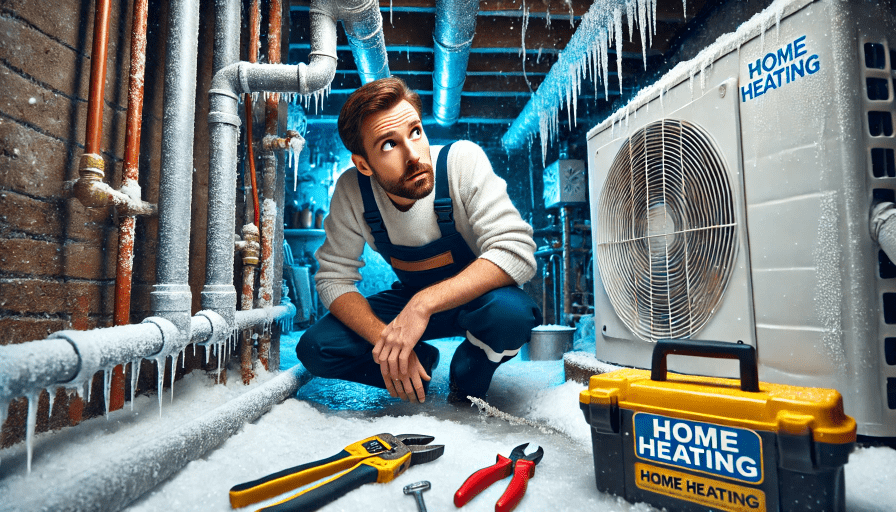
Prepare for Cold Weather and Prevent Frozen Pipes
Why Pipes Freeze
Pipes freeze when the water inside them becomes too cold, causing it to expand and potentially
burst. This can obviously lead to significant plumbing issues, but can also damage your heating and
air conditioning systems resulting in costly repairs if left unchecked.
How Frozen Pipes Can Impact HVAC Systems
Freezing pipes can significantly impact HVAC systems, leading to costly furnace repairs and reduced
efficiency. This is particularly problematic for HVAC systems that rely on water
circulation, such as hydronic heating or heat pump systems, as a loss of water flow can lead to
system malfunctions or complete shutdowns. Frozen condensate lines in air conditioning systems
can also result in water backflow, damaging components or causing leaks inside the home.
Additionally, compromised pipes can lead to uneven heating or cooling, reducing the overall
effectiveness of the system. Preventative measures like insulating pipes and maintaining a
consistent indoor temperature can help avoid these issues.
How to Prevent Frozen Pipes
- Keep your home warm during the winter months.
- Open cabinet doors to allow warm air to circulate around pipes.
- Insulate pipes in unheated areas, such as basements, attics, and garages.
- Let faucets drip during extreme cold spells to prevent water from freezing.
- Shut off outdoor water sources and drain garden hoses before winter sets in.
By following these simple precautions, you can avoid the nightmare of frozen and burst pipes
during the colder months.


